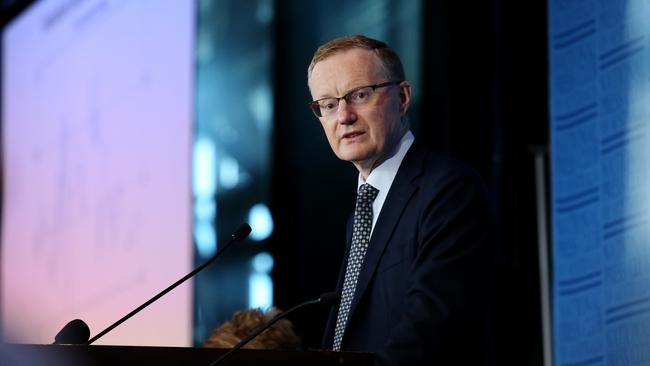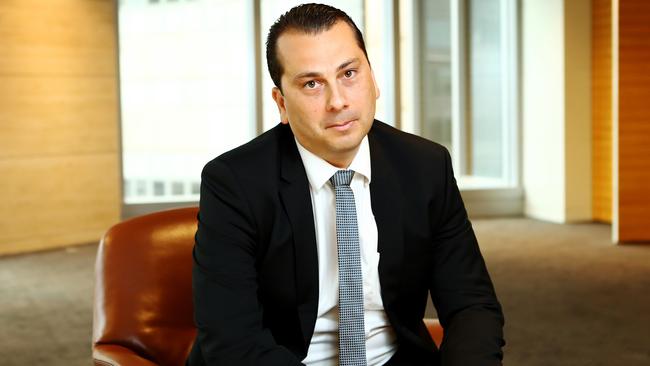Central bank keeps cash rate on hold but cuts outlook for economy, inflation
The jobs market will determine whether the cash rate is cut to a new low, economists say, after the Reserve Bank kept its powder dry amid the federal election campaign.
Business
Don't miss out on the headlines from Business. Followed categories will be added to My News.
The jobs market will determine whether the cash rate is cut to a new low, economists say, after the Reserve Bank kept its powder dry amid the federal election campaign.
Australia’s central bank yesterday kept the official cash rate on hold at its all-time low of 1.5 per cent for the 33rd month in a row but cut its outlook for economic growth and inflation.
The Australian dollar jumped and the share market retreated following the decision but the bourse still ended the day higher.
Many economists had expected the RBA board to cut the cash rate at its monthly meeting — despite the unfolding election campaign — given inflation has all but stalled and economic growth is slowing.
RBA DECISION A VOTE OF CONFIDENCE IN ECONOMY
RBA EASING BIAS UNUSUAL AND HOT

In his statement announcing the cash rate would stay on hold, governor Philip Lowe said the March quarter inflation reading was “noticeably lower than expected”.
But Dr Lowe noted the jobs market “remains strong” and the outlook for the global economy was “reasonable”.
The RBA cut its forecast for economic growth to 2.75 per cent both this year and next, down from 3 per cent.
Underlying inflation, which strips out volatile price movements, is forecast to come in at 1.75 per cent this year and 2 per cent next — down from an earlier prediction of 2 per cent and 2.25 per cent.

The central bank maintained its jobs forecast: the jobless rate is expected to remain at 5 per cent over the next year or so before improving to 4.75 per cent in 2021.
Dr Lowe said the board “recognised that there was still spare capacity in the economy”.
A “further improvement in the labour market was likely to be needed” for inflation to return to the central bank’s 2 per cent to 3 per cent target range, he said.
“Given this assessment, the board will be paying close attention to developments in the labour market at its upcoming meetings,” Dr Lowe said.
UBS chief economist George Tharenou said it appeared the unemployment rate — not inflation — had become “the de facto target” for the central bank.
“Should conditions deteriorate, the RBA will cut the cash rate,” Mr Tharenou said.
“We now question if the RBA still credibly targets inflation as they have for decades.”
CommSec chief economist Craig James said it was “all about the labour market”. “The Reserve Bank has an implicit bias in favour of lower interest rates,” Mr James said.
“But for rates to be cut there must be clear signs of deterioration in the labour market — fewer hours worked, higher jobless rate and continued weakness in wage growth.”
Bank of Melbourne chief economist Besa Deda said the jobs market was now key to any future rate cuts.

“The RBA’s ... statement made it clear the RBA has put its faith in jobs,” Ms Deda said.
Despite the RBA remaining on hold, most economists believe it will deliver at least one rate cut this year.
A survey of 38 economists and business and property figures by financial services broker Finder found 32 expect a rate cut by August, while 29 expect the cash rate to be 1 per cent by the end of the year. The RBA’s decision came as official retail numbers showed spending was stronger than expected in March but remain lacklustre for the first three months of the year.
Retail spending rose 0.3 per cent in March but fell by 0.1 per cent in the first quarter, seasonally adjusted, numbers from the Australian Bureau of Statistics show.
Separate economic figures showed the nation’s trade surplus dropped 4 per cent in March to a seasonally adjusted $4.95 billion as bad weather took a toll on the volume of commodity exports.


